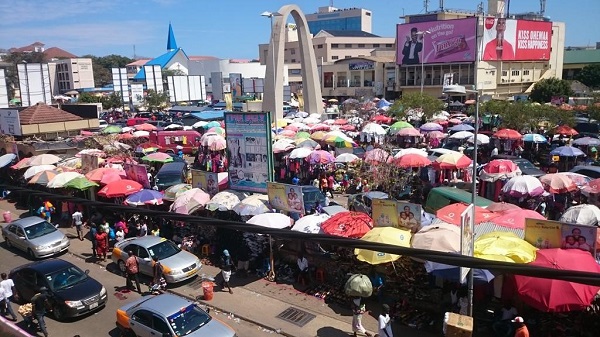According to Fitch Solutions, it forecasts real household spending (at 2010 levels) to grow by 3.9% y-o-y in 2024. This will come as both inflationary pressures and debt servicing costs ease.
Stability in the labour market will help to improve the prospects for consumer spending, as consumer confidence begins a path of recovery following years of stubbornly high inflation over 2022 and 2023.
In real terms (2010 prices), the research firm states that household spending is set to reach GHS114.2bn in 2024, higher than the GHS101.9bn posted in 2019, pre-Covid.
Growth To Be Steady Over 2024
Ghana – Total Household Spending, Real Growth, % y-o-y (2019-2027)
High-Frequency Data: Consumer Confidence And Mobile Money Transactions Regress
In June 2023 (latest available data), Ghanaian consumer confidence fell back to 87.5, after increasing to 88.8 in April 2023. While this level is substantially higher than the 79.7 level in June 2022, it remains lower than the 96.5 average over the year of the Covid-19 pandemic (2020). High levels of inflation, slower economic growth, rising levels of dissatisfaction with government policy and interest rate hikes are all contributing to a downbeat Ghanaian consumer.
Consumer activity in Ghana faltered in Q223, with the total value of mobile money transactions dropping from GHS159.7bn (USD14.0bn) in March 2023 to GHS149.4bn (USD13.1bn) in June 2023 (latest data available). Fitch highlight that much of the increase in nominal values since Q421 can be accounted for by inflation, which averaged 33.4% y-o-y between October 2021 and July 2023.
Similarly, the reacceleration of inflation (discussed in greater detail below) saw the number of transactions decline from 563mn transactions in May, to 532mn transactions in June 2023, as consumers have scaled back the volume of purchases.
In October 2023 (latest available data) Ghanaian consumer price inflation slowed to 35.2% y-o-y, the lowest level since August 2022. This level of inflation remains significantly higher than what Ghanaian consumers are used to, where over 2015-2019, inflation averaged just 12.4% y-o-y. Such high levels of inflation are creating substantial downward pressure on both real spending growth, but also consumer and business sentiment.
Over 2024, Fitch Solutions forecast inflation to average 18.6% y-o-y and will end the year at 13.1% y-o-y, which will allow consumers to start prioritising more non-essential categories. The slowing of food inflation will be particularly beneficial for consumer spending on other goods and services given that food and non-alcoholic drinks account for more than 40% of total household spending in Ghana.
Norvanreports





